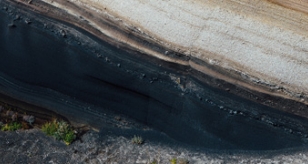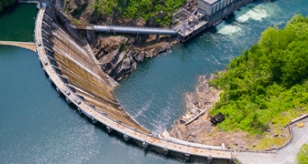Geotechnical Engineering
Research themes
- Fundamental unsaturated soil mechanics – particularly the development of the effective stress concept; modelling stress–strain behaviour; and coupling thermal, hydro and mechanical behaviours. (Khalili, Russell, Khoshghalb, Shahbodagh)
- Applied unsaturated soil mechanics – particularly the way unsaturated soils can be characterised using in situ tests, including the CPT; the way unsaturated soils interact with infrastructure, including shallow foundations and retaining walls; and the way unsaturated soils erode. (Russell, Khalili)
- Fundamental modelling of the stress–strain behaviour of soils – linking microstructure to large scale behaviour. (Russell, Khalili, Khoshghalb)
- Fundamental rock mechanics – focussing on failure mechanisms and microstructural deformation. (Douglas, Russell)
- Mechanics of fibre-reinforced geomaterials – their use in infrastructure to increase strength and provide failure resistance. (Russell, Taiebat)
- Dam engineering – particularly piping and internal erosion, and spillway erosion. (Fell, Douglas)
- Computational geomechanics – particularly the development of new computational schemes involving meshless methods; the distinct lattice spring model; large deformation finite element analyses; and dynamic loading. (Khalili, Khoshghalb, Shahbodagh)
Research Excellence
The Geotechnical Engineering Research Group has an impeccable record of securing research funding from the Australian Research Council (ARC) and industry. For the last few years, the Group has received several million dollars in competitive grants, including four ARC Discovery Projects, ARC Linkage Projects, ARC funded large equipment grants and industry funded grants.
The Group has produced hundreds of journal publications and has received ten international awards and honours in recognition of its research excellence. The group has collaborative links with leading international research institutions, including Cambridge, Stanford, McGill, Bristol, EPFL and Paris Ecole Polytechnique.
The Geotechnical Engineering Research Group provides services to national and international geotechnical engineering communities through roles in technical committees, professional societies, journal editorial boards and the organisation of international seminars and conferences. Group members regularly conduct consulting work for industry.
Research Facilities
The Geotechnical Engineering suite of laboratories contain a diverse range of conventional soil, rock and asphalt testing equipment, along with specialist equipment used primarily to support research.
These include:
- numerous triaxial cells, pressure plates and oedometers for testing unsaturated soils at normal and elevated temperatures, under standard and user-defined stress paths
- a calibration chamber for conducting cone penetration tests in unsaturated soils
- a lateral earth pressure testing rig and a shallow foundation testing rig to research foundations involving unsaturated soils
- a rotating cylinder, a specialist pin-hole apparatus and a piping chamber for testing erosion of soils
- a ring shear apparatus, a large shear box and high pressure (60MPa) triaxial cells for testing gravel, rock and sands undergoing particle crushing
- an asphalt testing laboratory.





